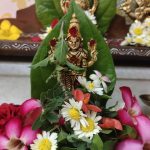Shivalinga symbolically represents the supreme god Lord Shiva in Hindu theology. Shivalinga generally protects the overall concept of the trinity – Brahma (Creator), Vishnu (Protector), and Shiva (the destroyer). However, there are mixed notions regarding whether keeping Shivalinga at home is auspicious or not.
Is it superstition or logical?
- In Hinduism, there are tons of restrictions and disciplines to follow for devotees. People are restricted from keeping Shivalinga at home because of the fear of menstruating ladies. People startle by touching the divinity while menstruating and unknowingly inviting the wrath of Lord Shiva. As time flies, cultural practices and norms are changing. However, menstruating ladies are believed to be the source of purity and sanctity. However, this might be a solid reason to prevent people from keeping Shivalinga at home.
- Divine idols require daily worship, called Nitya Puja, especially Shivalinga. If devotees miss offering a bath and Puja (prayer) to Shiva daily, this might turn into something harsh for them. To avoid the disruption of daily worship, people don’t keep Shivalinga at home.
- Since Shiva is the god of ultimate perfection, he despises lies, oversights, profaning acts, and other flaws at home. It can invite his anger to the residents. So, to avoid making Shiva angry for minor shortcomings, people don’t favor installing Shiva in their home or home temple.
Although none of these reasons truly justifies the restriction of placing Shiva idol/ Shivalinga at home, you can install the divine idol on the Northside. Also, never miss worshiping the supreme power regularly. So, it will bring you the blessings of Shiva.
Feature Image Credit: Pinterest.




